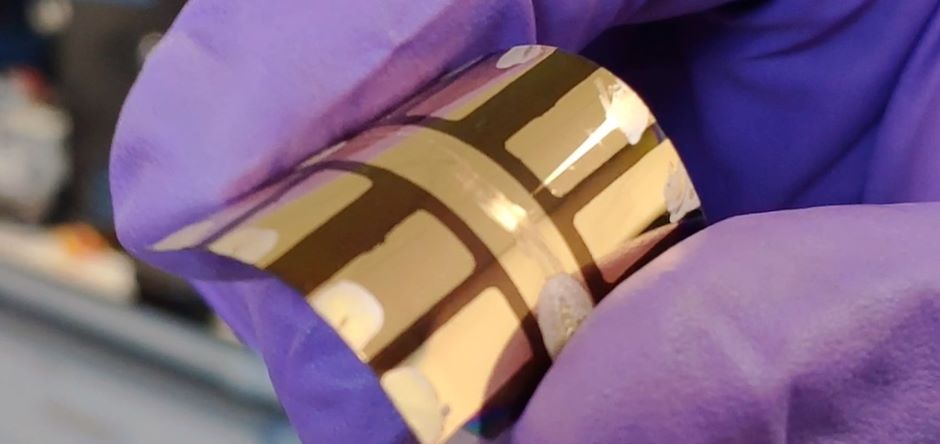
The £6m EPSRC-funded project involves a team of researchers at Swansea University, Imperial College London and Oxford University plus input from 12 industry partners.
Swansea team on a roll with printed perovskite solar cells
Organic and perovskite solar cells are said to offer the advantages of being flexible, lightweight, cheap to produce, and they can be printed directly onto products during manufacture.
According to EPSRC, these properties make them suitable for 5G applications where an ultra-lightweight power source would be required for pseudo-satellites and high-altitude unmanned aerial vehicles; or to power sensors and computing devices in IoT applications. Similarly, they could be incorporated into the roofs, walls and windows of zero-carbon buildings and vehicles to generate power.
In a statement, EPSRC executive chair Prof. Dame Lynn Gladden said: “This exciting, multi-disciplinary project represents a step-change in the application of solar power and will help the UK to cut emissions and develop a climate-resilient, zero-carbon economy.
“The versatility and low cost of this emerging technology also demonstrates how innovative sustainable technologies will help us to improve the way we communicate through 5G and the Internet of Things.”
The programme grant will help the team in delivering the fundamental science and engineering to underpin the development of these solar technologies; develop low-cost manufacturing methods for production at scale; and develop prototypes to show how they can provide solar power in new applications.
Dubbed Application Targeted and Integrated Photovoltaics (ATIP), the programme will be led by SPECIFIC Innovation and Knowledge Centre at Swansea University in partnership with Swansea’s new Centre for Integrative Semiconductor Materials (CISM), the Centre for Processable Electronics (CPE) at Imperial College London, and Oxford University’s Department of Physics.
Project leader Prof. James Durrant from SPECIFIC Innovation and Knowledge Centre said: “The fact that the EPSRC has chosen to award this Programme Grant is testament both to the expertise of our team and to the UK’s strength in this field. With these three leading centres working together, we will be able to advance the next generation of solar technologies from the lab to the real world more quickly, for the benefit of the UK and the rest of the world.”




Glasgow trial explores AR cues for autonomous road safety
They've ploughed into a few vulnerable road users in the past. Making that less likely will make it spectacularly easy to stop the traffic for...